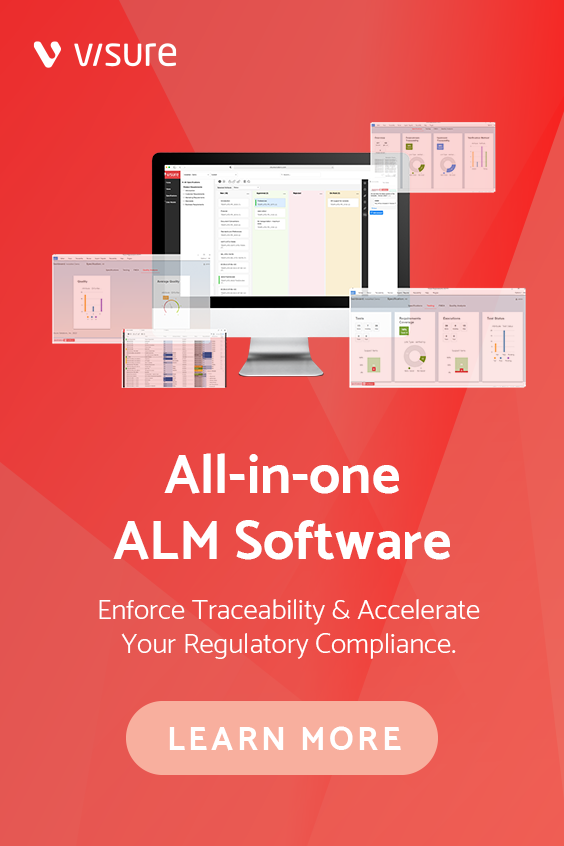In today’s fast-paced world, the demand for complex systems across industries is higher than ever. As these systems become more intricate, the processes required to develop, test, and certify them also grow in complexity. Traditional systems engineering approaches, which have served well for decades, are beginning to show their limitations, especially in the face of rising demands for faster time-to-market and stricter compliance requirements. This is where AI-driven systems engineering comes into play, offering a transformative approach to streamline development timelines and ensure robust compliance.
The Challenges of Traditional Systems Engineering
Systems engineering is a multidisciplinary approach that ensures the successful development of complex systems by integrating different components, processes, and teams. It encompasses everything from requirements management to design, testing, validation, and verification. However, traditional systems engineering methods often face several challenges:
- Manual Processes: Many steps in systems engineering involve manual work, such as requirements gathering, validation, and traceability. This manual effort can lead to errors, inconsistencies, and delays.
- Complexity of Compliance: With increasing regulatory requirements, ensuring compliance is more complicated than ever. Traditional methods often struggle to keep up with the evolving standards and regulations, leading to potential risks of non-compliance.
- Siloed Data and Teams: In many organizations, systems engineering processes are fragmented across different teams and tools. This siloed approach hinders collaboration and slows down decision-making.
- Time-Consuming Iterations: As systems become more complex, the iterations required for design, testing, and validation can be time-consuming, delaying the overall development timeline.
The Rise of AI in Systems Engineering
AI-driven systems engineering addresses these challenges by introducing automation, intelligence, and collaboration into the process. AI can transform the way systems are engineered, enabling faster, more accurate, and compliant development processes. Here’s how:
- Automating Requirements Management: AI can automate the process of gathering, analyzing, and managing requirements. By using natural language processing (NLP), AI can extract requirements from documents, identify inconsistencies, and suggest improvements. This reduces the manual effort involved and ensures that all requirements are captured accurately from the start.
- Enhancing Design and Simulation: AI algorithms can optimize system designs by analyzing vast amounts of data and suggesting the best possible configurations. Machine learning models can simulate different design scenarios and predict potential issues, enabling engineers to make informed decisions early in the development process.
- Streamlining Compliance: Compliance is a critical aspect of systems engineering, especially in regulated industries like aerospace, automotive, and healthcare. AI can continuously monitor and update compliance requirements, ensuring that the system design and development processes adhere to the latest standards. AI can also automate the generation of compliance reports, reducing the risk of human error.
- Enabling Real-Time Collaboration: AI-driven tools can break down silos by integrating different teams and tools into a unified platform. This allows for real-time collaboration, where engineers, designers, and compliance officers can work together seamlessly, reducing delays and improving the quality of the final product.
- Predictive Maintenance and Lifecycle Management: AI can predict potential system failures or maintenance needs by analyzing data from previous projects and current operations. This proactive approach to lifecycle management ensures that systems remain reliable and compliant throughout their operational life.
Benefits of AI-Driven Systems Engineering
The adoption of AI-driven systems engineering offers several key benefits:
- Faster Development Timelines: By automating manual processes and enabling real-time collaboration, AI reduces the time required for each phase of the systems engineering lifecycle. This accelerates the overall development timeline, allowing organizations to bring products to market faster.
- Improved Accuracy and Quality: AI-driven tools minimize the risk of human error by automating repetitive tasks and providing intelligent insights. This leads to more accurate designs, better decision-making, and higher-quality end products.
- Enhanced Compliance: AI ensures that compliance is built into the development process from the start. By continuously monitoring regulations and automating compliance tasks, AI reduces the risk of non-compliance and the associated penalties.
- Cost Savings: Faster development timelines, improved accuracy, and enhanced compliance translate into significant cost savings. Organizations can reduce the resources spent on rework, testing, and compliance audits, ultimately improving their bottom line.
- Scalability: AI-driven systems engineering can easily scale to accommodate larger and more complex projects. As the scope of the project grows, AI tools can handle the increased complexity without a proportional increase in manual effort.
Real-World Applications of AI-Driven Systems Engineering
AI-driven systems engineering is already being applied in various industries, demonstrating its potential to revolutionize complex system development.
- Aerospace: In the aerospace industry, AI is used to optimize aircraft designs, simulate flight conditions, and ensure compliance with stringent safety standards. AI-driven tools can also predict maintenance needs, reducing downtime and improving operational efficiency.
- Automotive: The automotive industry leverages AI for designing and testing autonomous vehicles. AI algorithms analyze vast amounts of data from sensors and simulations to optimize vehicle performance and ensure compliance with safety regulations.
- Healthcare: In the healthcare sector, AI-driven systems engineering is used to develop complex medical devices and ensure they meet regulatory standards. AI also helps in managing the lifecycle of these devices, from design to maintenance.
- Defense: The defense industry uses AI to design and develop advanced systems, such as unmanned vehicles and missile defense systems. AI-driven tools enhance the accuracy and reliability of these systems while ensuring compliance with military standards.
The Future of Systems Engineering with AI
The integration of AI into systems engineering is still in its early stages, but its potential is undeniable. As AI technology continues to evolve, we can expect even greater advancements in the field of systems engineering. Future developments may include:
- AI-Driven Innovation: AI will enable organizations to innovate faster by providing insights that were previously unattainable. This could lead to the development of entirely new systems and technologies.
- Advanced Simulation and Testing: AI-powered simulations will become even more sophisticated, allowing for virtual testing of systems in real-world scenarios. This will reduce the need for physical prototypes and accelerate the testing phase.
- Continuous Compliance Monitoring: AI will provide continuous monitoring of compliance across the entire lifecycle of a system, from design to decommissioning. This will ensure that systems remain compliant with evolving regulations throughout their operational life.
- AI-Enhanced Decision-Making: AI will support decision-making at every level of systems engineering, from high-level strategic decisions to detailed technical choices. This will lead to more informed and effective decisions, ultimately improving the outcomes of complex projects.
Conclusion
AI-driven systems engineering is a game-changer for organizations developing complex systems in today’s competitive and regulated environment. By automating processes, enhancing collaboration, and ensuring compliance, AI helps streamline development timelines and deliver higher-quality products. As AI technology continues to advance, its impact on systems engineering will only grow, making it an essential tool for organizations looking to stay ahead in their industries. Embracing AI-driven systems engineering today will position organizations for success in the rapidly evolving landscape of tomorrow.
Check Out The Webinar
Discover how AI can accelerate timelines, ensure seamless compliance with industry standards, and optimize resource management. We’ll also introduce Crew-AI, Visure’s cutting-edge AI Assistant that creates a virtual team of engineers to enhance every phase of your application lifecycle, from requirements to testing and compliance.
In this webinar, we’ll cover:
- Faster Development: AI automates complex tasks, reducing errors and significantly accelerating project timelines for faster delivery.
- Seamless Compliance: AI continuously monitors and ensures compliance with industry standards, minimizing risks and reducing the burden of manual checks.
- Optimized Resource Management: AI predicts potential bottlenecks and optimizes resource allocation, ensuring projects stay on track and within budget.
- Enhanced Traceability: AI strengthens traceability across the entire lifecycle, ensuring precise alignment with requirements and adherence to regulatory standards.
- Introducing Crew-AI: Meet Crew-AI, Visure’s AI-powered assistant that assembles a virtual team of engineers, optimizing every phase of the application lifecycle, including requirements, testing, and compliance.
- Future-Ready Engineering: Integrate AI to future-proof your engineering practices, maintain a competitive edge, and continuously improve processes.


